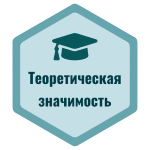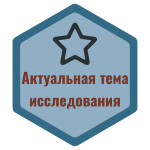Keywords: vocabulary learning, incidental, intentional, languages
Introduction. Learning languages is an integral part of modern life. People can start learning languages at any age with any level of preparation. However, there are many people who seem scared and do not even try to learn languages because it can be time-consuming and in many cases the desired level is achieved later than expected. A lot of practitioners are trying to help in overcoming different obstacles that language learners meet on their way. One of the most significant challenges is learning new words and understanding their meaning.
It was always believed that only through intentional and thorough work the words can be remembered. This usually means: you want to learn a word, then you find its definition or translation, use it in your speech, then you repeat it a lot of times. However, when in 2020 COVID-19 forced people to work and study remotely there were many changes taking place in language acquisition as well. Since that year gave people a unique experience of seeing the unity of many countries. That collaboration included exchanging information via media. People without looking into dictionaries and deliberately repeating the words understood not very popular terms like lockdown, quarantine, vaccination, zoom, etc.
In many countries learning foreign languages is crucial. Therefore, understanding whether students know the words that were not taught at English lessons intentionally, but rather were learned unintentionally or incidentally through reading and listening to news and social media can benefit both teachers and learners. That is why the main focus of in this article the research aim is to identify how popular words of pandemic time were learned.
The process of unintentional vocabulary learning is called incidental vocabulary learning . We believe that some strategies of learning new words incidentally can help foreign language learners. Moreover, unintentional vocabulary learning is not only improving your vocabulary level, but makes your understanding of new information better. For example, you heard or read about it, and now you are also aware about the things that happening right now. And as it is known learning vocabulary through contextual clues includes guessing words. So it can be assumed that “unintentional vocabulary learning” is good in many ways, because it develops several skills in people.
Literature review . In this section the importance of vocabulary, definition of incidental and intentional vocabulary learning strategies based on various studies of this field are examined.
According to Moir and Nation (2008) in the past a lot of people believed that lexical instruction did not have an important role in acquiring a language. That is why teaching of vocabulary was not popular [1]. However, it was also found out that vocabulary is a basic component of language proficiency which gives the basis for learners’ performance in other skills, such as speaking, reading, listening and writing. Taking the importance of vocabulary into account as it is stated in Richards and Renandya (2002) work now there is a classification of approaches to vocabulary teaching: 1) incidental learning (i.e., learning vocabularies as the by-product of other activities as reading, listening, etc.) 2) Explicit or intentional instruction and 3) Independent strategy development [2].
In this work we would like to focus on two main approaches: incidental and intentional. Hulstijn (2006) states that intentional learning refers to the learning mode in which participants are informed, before starting a learning task, that they will be tested after about what they learned and remembered. Incidental learning is when participants are not informed about the test. Which means that incidental learning is learning of one thing, when the learner's primary objective is to do something else. To put it differently, incidental learning is learning in the absence of an intention to learn (Ahmad, 2012) [3].
Therefore, while incidental vocabulary learning of vocabulary may be a useful way of acquiring vocabularies for most advanced learners, intentional/explicit instruction is essential for beginning learners whose reading ability is limited (Hunt and Beglar, 1998) [4].
Even though approaches are known, but there are debates on “how to identify significant approaches and strategies to teaching and learning vocabularies, which result in longer and easier retrieval of the vocabularies” (Hedge, 2000).
As Hulstijn (2003) points out, learning a second language can either mean months and years of ― intentional study , by deliberately committing to memory thousands of words along with grammatical words, or it can mean ―incidental learning by ―picking up structures and lexicon of a language, through getting engaged in a variety of communicative activities, namely reading and listening, while the learner's attention is focused not on the form but on the meaning.
This is what we have witnessed recently. When a lot of people were learning new words while watching and reading news that was everywhere. This is similar to what Hunt and Beglar (1998) stated about extensive reading and listening that “many vocabularies are learned incidentally through extensive reading and listening”. They also focus on motivating learners to extensive reading and listening. In our case there was an inner motivation that forced students to read and listen various sources.
The most important feature of incidental vocabulary learning is that, as Hunt and Beglar (1998) point out, it can be a useful approach for all language learners at all levels.
Some researches (Huckin and Coady,1999) even highlighted the advantages of this approach focusing on mention the following advantages of incidental vocabulary learning: firstly, it is contextualized, giving the learner a rich sense of word use and meaning; secondly, it is pedagogically efficient in that it involves two activities at the same time: vocabulary acquisition and reading; finally, it is more learner-based, in that it is the learner who selects the reading materials.
Moreover, there was a study which showed that incidental type performed significantly better than intentional type (Ahmad, 2012). While thinking over the research methods to identify the importance of incidental vocabulary in our context, some ideas from Ahmad’s research paper were used. Thus, we also focused on multiple choice questions and added them in our survey.
Practical part. The main research question was to understand whether students know the new words of 2020 and how they learned these words. For collecting data, it was decided to conduct a survey among 7 and 8 graders. In that survey there were 9 questions that were similar to those used in the study of Jameel (2012) [5]. The questions of this survey include words that were popular last year and question/tasks were given in different ways. Thus, students were asked to complete the sentence, choose correct options, give a definition to the word. So, students were asked not only to choose the most relevant answer, but also show the true understanding of the words.
The results of survey assisted in choosing two students for individual meeting, where the students were interviewed about their experience of learning the words from the survey. The aim of the interview was to understand how they knew the meanings of these words and where did they learn it. There were two open questions. The interviews were online and the answers of students were recorded.
One task was to find definition of “social distancing”. This word was popular last year and still being used since the virus has not gone yet. We expected that most of the students would know this word, they could notice this word anywhere even though it is in English. Most of them could give the right answers that are “avoiding contact with people” and “not going to public areas”. However, it was uncommon for students not to know the definition of this word.
Another word that was chosen for this survey was an example of a word that could be learnt by students during online studying. When quarantine started all students in the world switched to online studying, and it had its own rules and conditions. Instead of just talking in real life with your classmates and teachers, everyone started using microphones and web-cameras. So the word “on mute” meant when you turned off your microphone. Almost every survey participant gave a correct answer, which was expected by many.
The next step we took after the survey was to conduct an interview with two students that were most successful at giving the right answers. Questions that were asked during this interview were about where and how they learned these words. Students gave very similar answers. For example, students remembered them because they read articles, news about what was happening in the world; also that quarantine gave them a lot of time for self-development, so they spent their time on reading and getting new things they were interested in. They thought it was actually helpful and also give examples of unintentional vocabulary learning. Students read the news for getting information, and incidentally learnt a lot of words that could be useful in their speech.
The literature review which was conducted for this study important for knowing the situation in other counties and better understanding the topic.
Conclusion and Recommendations. The purpose of this study was to identify whether students know the words that were the most popular in 2020 and understand how they managed to learn these words. As a result, we hope to understand how we can use incidental vocabulary learning to improve vocabulary level of language learners.
The main research questions were answered with the help of survey and two interviews that were conducted.
The first question was:
Do students know the new words of 2020?
It is evident that students could identify correctly at least 5 out of 9 words correctly. Even though these words were not taught at English lessons, they still could understand the meaning from context.
The second question was:
Did they learn these words incidentally?
If so, how did they do it?
The interviewees of this study answered that they did not learn the words in a traditional way. Instead, they were describing how they learnt the words and it is similar to experiences that were described in literature review chapter.
The research showed that incidental vocabulary learning is effective and students remember a lot of words because they were reading and listening extensively to various sources. Moreover, in the interview students were positive about this approach to remembering and learning words.
Further study must involve more students in the survey and focus on sources of information that students used and how the same sources can assist in learning languages in accordance with school curriculum.
The main recommendation is not to underestimate the role of extensive reading and listening. But also to help students to find the best sources of information that can improve their vocabulary.
References:
- Jo Moir and Paul Nation. (2008). Vocabulary and good language learners. Lessons from good language learners. Cambridge: Cambridge University Press.
- Jameel Ahmad. (2012). Intentional vs. incidental vocabulary learning. International Association of Research in Foreign Language Education and Applied Linguistics ELT Research Journal 2012, 1(1), 71–79
- Hedge, T. (2000). Teaching and learning in language classrooms. Oxford: Oxford University Press.
- Huckin, T & Coady, J. (1999). Incidental vocabulary acquisition in a second language: A review. Studies of Second Language Acquisition 21, 181–193.
- Lawson, M. J., & Hogben, D. (1996). The Vocabulary-Learning Strategies of Foreign-Language Students. Language Learning, 46(1), 101–135. https://doi.org/10.1111/j.1467–1770.1996.tb00642.x
- Alemi, M., & Tayebi, A. (2011). The Influence of Incidental and Intentional Vocabulary Acquisition and Vocabulary Strategy Use on Learning L2 Vocabularies. Journal of Language Teaching and Research, 2(1), 81–98. https://doi.org/10.4304/jltr.2.1.81–98










